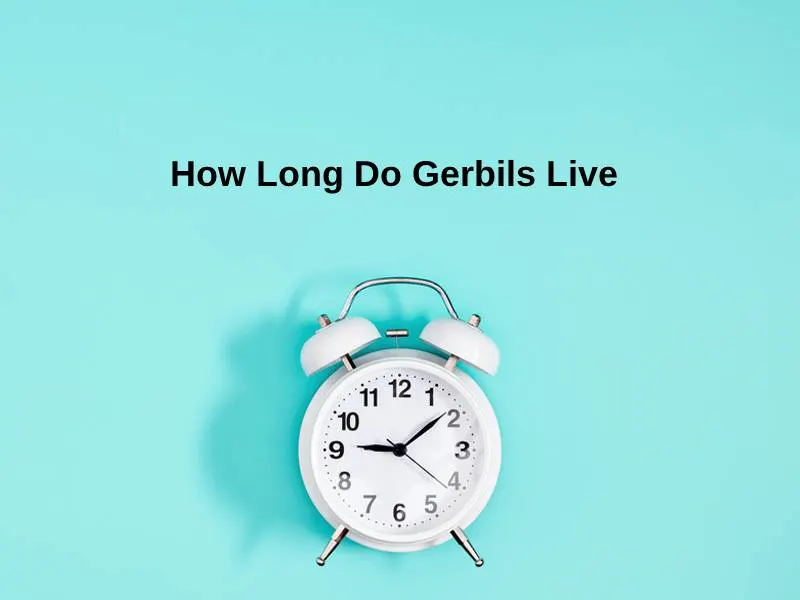Exact Answer: 2 To 6 Years
There are millions of animals in this world, some large, some tiny, and some even minuscule. There are birds, domestic and wild animals, carnivores, omnivores, and herbivores, and living organisms are classified into various categories, based on their habitat, what they eat when they hibernate, and many other factors. One animal, that is very tiny and looks like a rat, is the gerbil. Gerbil belongs to one of the subfamilies of rodents.
Gerbils are also known as desert rats, and jirds and sand rats also belong to the same family as gerbils. Since gerbils are tiny animals, they do get eaten faster by large animals so they tend to have a lesser lifespan than most of the other animals. Yet, the average lifespan of a gerbil is completely different.

How Long Do Gerbils Live?
| Type of gerbil | Time |
| The average lifespan of a gerbil | 2 to 6 years |
| In the wild | 2 to 3 years |
| As pets | 3 to 4 years |
Gerbils are most commonly found in certain parts of India, Africa, and Asia. Gerbils belong to the family of Muridae, the kingdom of Animalia, the phylum of Chordata, class, and order of Mammalia and Rodentia, and the gerbils especially belong to the subfamily of Gerbillinae. Some gerbils are even adopted as pets. For example, the Mongolian gerbil, which is also known as the clawed jird, is even adopted as a pet in many countries. There are more than 110 species of gerbils in the world.
Gerbils are omnivorous animals and they are active during the day, sleep for a while at night. Gerbils are about 6 to 12 inches long and they have a tail like any other rodent. There are even gerbils that grow up to 16 inches. Normally, an adult gerbil weighs around 60 to 70 grams. The lifespan of a gerbil depends on various factors, which include physical and genetic reasons. Gerbils live for around 2 to 4 years on average, and when they are taken care of well, they even live for 5 to around 6 years.
The lifespan of the gerbils depends on where they live, how well they are taken care of, what they eat, how well they protect themselves, their genetic traits, how well they interact socially, and much more. Recent surveys have consolidated that the Mongolian gerbils live longer than many other species, and that is because they are the ones that are adopted as pets.
Why Do Gerbils Live That Long?
When gerbils are taken good care of as pets, they can last for about 3 to 6 years. Gerbils, when they live in the wild, tend to live for around 2 to 4 years at maximum. They should not be exposed to predators very much, since they are tiny animals and can be easily attacked. There should never be a shortage of food and water, and their food should be high in protein.
Gerbils breed a lot, and when they are kept in captivity, they breed year-round. In the wild, they mate randomly about three times a year, during the time of February to October. Gerbils become mature sexually when they are three months old, and they can breed safely until they are 20 months old. Though gerbils can live for more than 4 years, they will start showing signs of aging once they reach 2 years.
After the age of 2, gerbils will start showing symptoms of old age, and after a while, the gerbils will start losing their teeth, and it will start breaking. At times like this, the food must be broken down into pieces so that they can eat them.
Conclusion
Gerbils are social animals, and they require contact with their species. When they are kept in isolation, they become stressed, which will reduce their lifespan. One of the most common health problems over 90% of the gerbils get, is epilepsy. They can even die because of seizures.
Epilepsy is genetic, so medical breeders test the gerbils for epilepsy before classifying them. To increase the gerbil’s lifespan, make sure they get enough contact, clean their cages regularly, monitor their weight and teeth after 2 years, handle them properly, and much more.